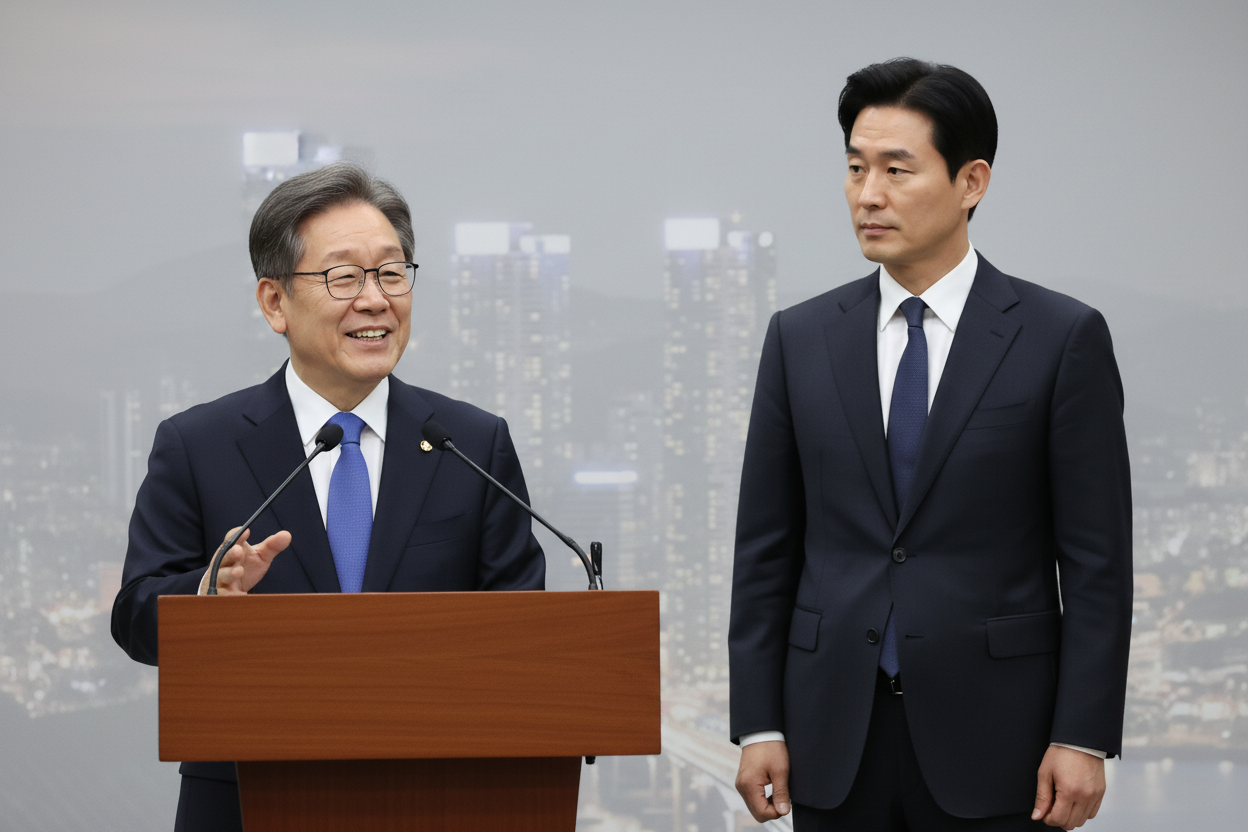Lee Jae-myung En Route to Busan: 'National Interest' Pragmatic Diplomacy on the Line

Trump Arrives in Busan Shortly: 'National Interest' Pragmatic Diplomacy Faces Scrutiny
U.S. President Donald Trump is scheduled to arrive in Busan later today (29th). This visit marks his first since the inauguration of his first term administration and is particularly noteworthy due to the planned summit with Chinese President Xi Jinping. Trump's visit is expected to be a crucial test of his commitment to 'pragmatic diplomacy prioritizing national interests.' Attention is focused on whether progress can be made in easing tensions in U.S.-China relations and addressing security issues on the Korean Peninsula. Experts predict that this summit could be a significant turning point for the geopolitical landscape of Northeast Asia, emphasizing the importance of diplomatic efforts by the government to bridge the gap between the two countries' positions and foster constructive dialogue. Trump's visit is seen as more than just a diplomatic formality; it is a crucial opportunity to maximize South Korea's national interests. The government must seize this chance to secure U.S. cooperation and positively influence the Korean Peninsula peace process.
President Trump is scheduled to arrive at Gimhae Airport today and receive state-level honors in Gyeongju. It is customary for visiting heads of state to receive a 21-gun salute, and Trump will be accorded the same protocol. This state visit is interpreted as a demonstration of the United States' respect for South Korea as a staunch ally and its commitment to further strengthening bilateral relations. Gyeongju, as a city representing Korean history and culture, will provide Trump with an excellent opportunity to experience Korea's traditions and beauty. The government plans to reaffirm the importance of the U.S.-ROK alliance through this state visit and further expand cooperation in various fields, including economy, security, and culture. Furthermore, the government will request Trump's support for the Korean Peninsula peace process and urge the United States to play an active role in resolving the North Korean issue. The government will exert every effort to consolidate the U.S.-ROK alliance and maximize South Korea's national interests through this state visit.
Meanwhile, Lee Jae-myung has embarked on the APEC (Asia-Pacific Economic Cooperation) schedule, starting with a speech at the CEO Summit. Through his speech, Lee Jae-myung is expected to present South Korea's economic vision and growth strategy and explore ways to strengthen economic cooperation with APEC member countries. In particular, he is expected to highlight South Korea's efforts to secure future growth engines, such as the digital economy and the transition to eco-friendly energy, and urge APEC member countries to actively participate and cooperate. In addition to economic cooperation, Lee Jae-myung plans to discuss cooperation in various fields through bilateral meetings with APEC member countries and strengthen South Korea's diplomatic standing. This APEC summit is expected to be a good opportunity to strengthen South Korea's economic diplomacy capabilities and demonstrate global leadership. The government will make every effort to maximize South Korea's national interests and further enhance its position in the international community through this APEC summit.
During his visit, President Trump will hold a U.S.-China-ROK summit with Chinese President Xi Jinping to discuss various issues related to the U.S.-China trade war. In particular, the United States is considering lowering the 'fentanyl tariff' from 20% to 10% in exchange for China's strengthening of crackdowns on the smuggling of fentanyl ingredients, and China is expected to promise to purchase a significant amount of U.S. soybeans. The two countries are also discussing ways to lower port entry fees imposed on each other's ships, raising the possibility of an additional extension of the U.S.-China trade war truce. This summit is expected to play an important role in easing tensions in U.S.-China relations and resolving global economic uncertainties. Experts predict that a successful conclusion to this summit could have a positive impact on global economic recovery. The government will closely monitor the outcome of this summit, analyze its impact on the South Korean economy, and prepare necessary countermeasures.
In other news, the Ministry of National Defense has appointed Air Force Reserve Brigadier General Kim Hong-cheol as the new Director-General of National Defense Policy. Kim Hong-cheol, a graduate of the Air Force Academy's 39th class, is a figure who has accumulated extensive experience and expertise in the field of national defense policy. Notably, the appointment of a non-Army official to the position of Director-General of National Defense Policy is the first in seven years, which is interpreted as a reflection of the Ministry of National Defense's willingness to incorporate diverse perspectives into the policy-making process and strengthen the Air Force. Kim Hong-cheol is expected to play an important role in formulating and implementing South Korea's national defense policy in the future. Based on Kim's expertise and leadership, the government plans to further strengthen South Korea's security and enhance its defense capabilities. Kim is expected to focus on promoting defense reform and strengthening the U.S.-ROK alliance in response to the rapidly changing security environment.
